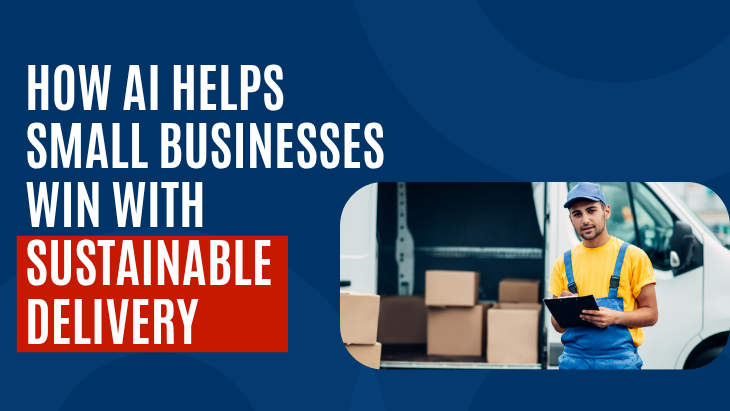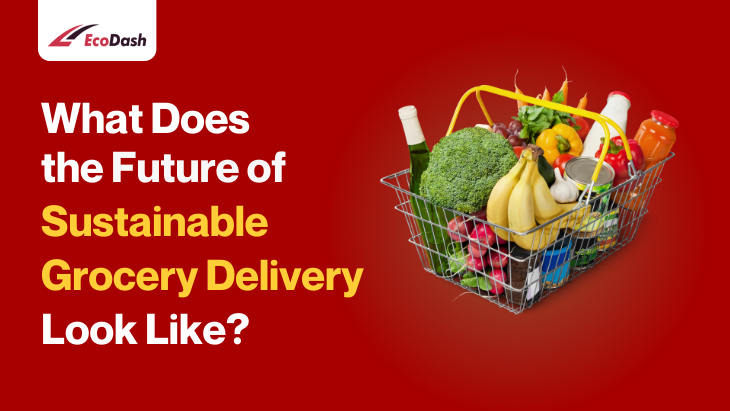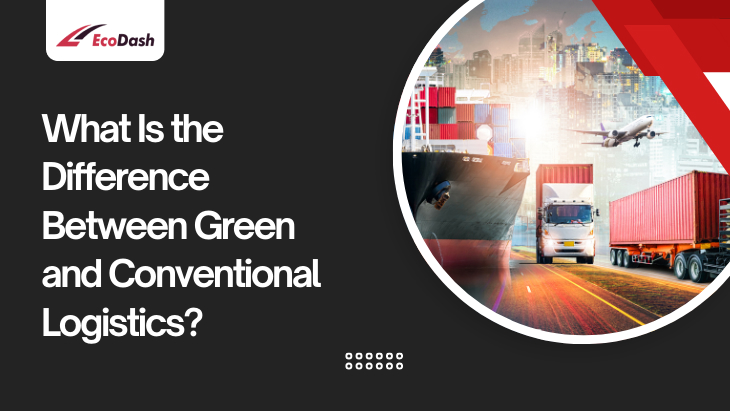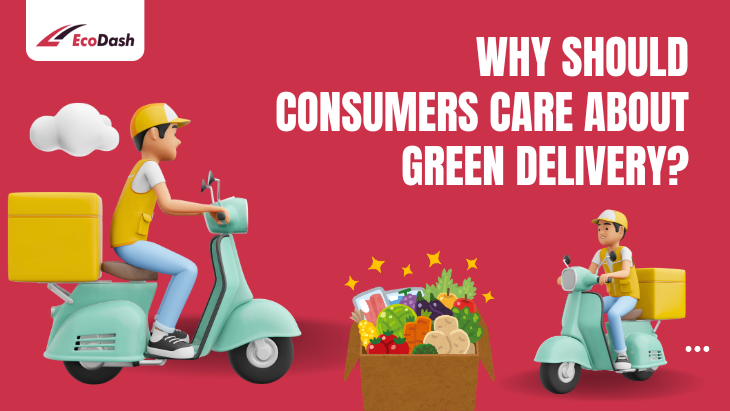Small companies have always struggled with the difficult task of competing with large corporations in delivery services. Shoppers want speed, convenience, and sustainability simultaneously, a feat that's not easy to accomplish. Fast Grocery Delivery in Canada Now that the use of fast grocery delivery is picking up in Canada, artificial intelligence (AI) is taking on the role of a game-changer and enabling small companies to streamline operations, reduce expenses, and establish eco-friendly processes without compromising on customer happiness.
The Move Towards Sustainable Delivery Models
Sustainability is no longer a buzzword in marketing—it's a requirement. Today's consumers are increasingly aware of the environmental footprint of their purchases, particularly in delivery services. Waste in packaging, fuel use, and inefficient routing can add up quickly to a large carbon footprint. AI provides small businesses with the ability to optimize routes, avoid unproductive trips, and select cleaner modes of transportation, making sustainable delivery not only feasible but profitable.
AI-Powered Route Optimization
One of the most powerful mechanisms through which AI enables quick grocery delivery in Canada is route optimization. Manual schedules or stale mapping tools are conventionally used for delivery planning, which results in lost time and fuel. AI programs evaluate traffic routes, weather, and locations of customers in real time and set up the most efficient routes. Not only do delivery times reduce, but environmental degradation is also reduced, which suits both the company and the planet.
Decreasing Operational Expenses Through Efficiency
Small businesses tend to run on thin margins, and delivery inefficiencies can easily cut into profits. AI-based systems reduce the need for manual intervention by automating scheduling, inventory control, and customer communication. By managing demand prediction and adapting delivery schedules, companies can prevent overstaffing or underusage of resources. These process enhancements make rapid grocery delivery in Canada more feasible for small business operators who are attempting to compete with larger companies.
Wiser Inventory Management
One of the main challenges in food delivery is having the right amount of inventory—too low and you're losing sales, too high and you're risking waste. AI assists small enterprises in reading sales data, seasonal patterns, and regional demand to forecast precisely what items are required. This results in fresher products, fewer expired products, and a more efficient delivery process. For green delivery, AI also recommends alternative packaging options and supplier options that conform to green standards.
Improving the Customer Experience
Repeat business is fueled by customer satisfaction, and AI ensures that each step of the delivery process is up to or better than expectations. From providing real-time tracking notifications to making individualized product suggestions, AI allows small businesses to craft a smooth customer experience. In fast grocery delivery in Canada's competitive market, this kind of personalization is sometimes what differentiates small businesses from the impersonal big corporation.
Embedding Electric and Low-Emission Vehicles
AI is not just about software but also informs hardware decisions. AI can suggest when and where to transition to electric or hybrid trucks for the biggest effect by analyzing delivery statistics. This change not only helps with sustainable delivery practices but can cut fuel expenses in the long run as well. In cities, AI can even propose using bicycles or e-scooters for short-range grocery deliveries, increasing the operation's greenness and efficiency.
Attending to Local and Community Requirements
One of the exclusive strengths of small businesses is their local connection. AI enhances this by studying local purchasing behavior and customizing delivery services based on this. For instance, if a local community shops for organic or locally produced items, the system can make these a priority in inventory management and marketing campaigns. This local focus enhances customer loyalty while facilitating sustainable delivery targets consistent with community values.
Data-Driven Growth
AI feeds on data, and each delivery creates rich insights. Small businesses can leverage AI analytics to know their peak order hours, best-selling products, and weak routes. Based on this information, they can make well-informed decisions regarding growing delivery areas, modifying price strategies, or placing marketing campaigns. In the long term, these insights enable small businesses to grow their fast grocery delivery operations in Canada in a sustainable manner.
Beating the Big-Player Advantage
Big firms tend to monopolize the delivery market with enormous infrastructure and marketing budgets. But AI evens the playing field by providing small companies with the same sophisticated tools for route optimization, inventory prediction, and customer interaction. By leveraging AI strategically, small companies can deliver services that are as good as or even better than those of larger firms—while still providing the personalized experience customers adore.
The Future of AI in Sustainable Delivery
The AI role in delivery will only grow. The future will see predictive demand forecasting linked to weather, auto-micro-warehousing facilities, and AI-based sustainability scoring on each order. For small businesses, being ahead of the curve will equate to being able to deliver faster, cleaner, and more efficiently. As Canadian consumers increasingly demand quick grocery delivery with a green mindset, AI will be at the heart of it all.
Conclusion
AI is revolutionizing delivery for small businesses, making sustainability a value driver, not an expensive burden. Ecodash From inventory prediction and route planning to electric vehicle adoption and customer personalization, AI provides the tools that make accelerated grocery delivery in Canada not just viable but profitable for small businesses. In a world where customers want both speed and accountability, using AI for sustainable delivery is no longer a choice, it's the formula for long-term success.


 Cart
Cart







Leave a reply